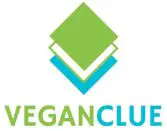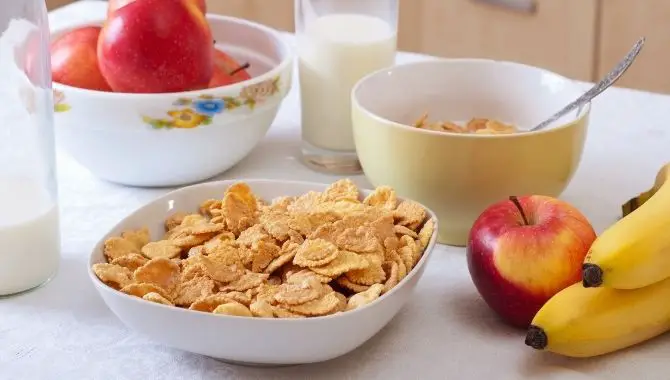Kellogg’s Raisin Bran is one of those popular cereals that looks as if it should be vegan. Bran is vegan, raisins are vegan, so Raisin Bran ought to be vegan — right? Wrong. Like many breakfast cereals, Raisin Bran has a few ingredients that make it non-vegan. In this article, we’ll be looking at the constituents of Raisin Bran and discovering why it’s not quite as vegan as it looks. You’ll also find out about similar cereals that are okay for vegans, and how to make your own delicious vegan breakfast cereals at home.
Is Raisin Bran vegan? Unfortunately, Kellogg’s Raisin Bran and similar cereals typically aren’t vegan. They contain various ingredients that are dubious from a cruelty-free perspective, and a few that have animal origins. The most common animal ingredient is a form of vitamin D that’s derived from lanolin.
You’ve arrived on this page because you have questions about popular breakfast cereals from a vegan perspective. Maybe you’re a new vegan looking into the ingredients of your favourite foods. Maybe you’re an established vegan, and you want to add some extra items to your shopping list. Is Raisin Bran vegan? Are there any brands of raisin bran cereal that are safe for vegans? Can you make raisin bran at home from cruelty-free ingredients? Keep reading to find out more. You’ll learn all about the potentially non-vegan ingredients that are commonly found in cereals, and how you can avoid them.
Is Raisin Bran vegan?
Kellogg’s Raisin Bran, along with many other brands of similar cereal, is not vegan. This might come as a shock to new vegans, but most breakfast cereals manage to include at least one or two ingredients that vegans shouldn’t eat.
The main offender is a form of vitamin D. What’s so bad about vitamin D, you may well ask? It’s true that vitamin D is a very important nutrient, and one that most of us are probably deficient in. Regrettably, the version used to fortify many cereals and other foods is a form of vitamin D3 that’s derived from lanolin.
What is lanolin? Lanolin is a type of fat. It’s derived from wool, hence its common name of wool fat. Sheep produce lanolin to keep their wool healthy and water-resistant. It’s used in a number of products, especially moisturisers and emollients (yes, vegans need to read the ingredients on those too). Lanolin is chemically processed to yield a form of vitamin D, which is then added to many supplements and to foods such as cereals, milk, and margarine or spread.
Vitamin fortification is a good thing, on the whole, but it’s frustrating when a huge range of otherwise flawlessly vegan foods are spiked with an animal ingredient for no real reason. Not all vegans avoid lanolin-derived vitamin D. The argument I hear from my cereal-loving friends is that since shearing doesn’t kill the sheep and since lanolin is a by-product rather than the reason for harvesting the wool, this form of vitamin D3 is acceptable. I beg to differ, but I’m not the veganism police and we all have to draw the line in the way that makes most sense to us.
To be strictly accurate, Kellogg’s Raisin Bran might be vegan, but Kellogg’s can’t guarantee that the vitamin D they use isn’t the one based on wool fat. For this reason, most vegans cross it off our shopping lists. Your mileage may vary, of course, but I for one prefer to be sure that there’s no wool in my breakfast.
Are there other animal ingredients to look out for?
Aside from wool fat vitamins, one of the main ingredients you need to avoid in cereal is whey. Whey is a milk protein that’s used in all kinds of foods, either to give the food a creamier taste or to improve the texture. Most cereals don’t list whey as a main ingredient, but they often contain trace amounts due to being manufactured alongside whey-containing foods.
Another ingredient that may not be vegan (depending on your perspective) is cane sugar. Even an ostensibly “healthy” cereal like bran flakes is often loaded with sugar to make it more palatable. While it’s certainly plant-based, about half of all cane sugar is refined using bone char. In case the name didn’t tip you off, bone char is made from carbonised animal bones. Not all vegans see this as a deal breaker, but if you’re keen on keeping your plate cruelty-free you’ll probably want to avoid it. Cane sugar refined without bone char might still be problematic, as the cultivation of cane often involves environmental damage and human rights violations. Beet sugar isn’t refined with bone char and is generally a better option for vegans, so you could look for cereal that uses beet sugar instead.
Nowadays a lot of brands seem to be switching to corn syrup as a sweetening agent. Corn — maize — is obviously a plant. Unfortunately, much of the corn used for syrup is genetically modified, sometimes incorporating animal genes.
You may also find artificial ingredients of all descriptions in your cereal. Many of these are fine, but some have been tested on animals. Again, not every vegan is so scrupulous that they’ll avoid all animal-tested ingredients. Dietary vegans and health-motivated vegans in particular may shrug and accept these, since they’re not directly derived from animals. Personally, I prefer to avoid them.
Is any raisin bran vegan?
Before you push your bowl away and swear off cereal all together, let’s look at some vegan alternatives. There are several vegan varieties of raisin bran cereal on the market, many of them manufactured by companies specializing in vegan foods. You can usually find these on the shelves at your favourite whole foods stores.
Vegan raisin brans switch out the problematic ingredients for plant-based, cruelty-free equivalents that are often safer and healthier. If they’re sweetened at all, they tend to use fructose, fruit juices such as concentrated apple juice, or organic sugar refined without bone char. The lack of additional sugar also makes them better for you than the sugar-laden versions you’ll find in the supermarket.
You also won’t need to miss out on those added vitamins. Most vegan cereals are vitamin-fortified just like regular cereals. Out goes wool-fat vitamin D3, and in comes a vegan algae based alternative. Most vegan cereals are also fortified with B12 from non-animal sources — great news for vegans, who may need to get a little extra of this crucial vitamin since we don’t get it from meat.
You might need to pay a little more for truly vegan cereals, but in my opinion they’re well worth it.
Can I make my own raisin bran?
Yes, you can. The simplest way to do this is to buy plain vegan bran flakes and add your own organic dried fruit. I make mine with vegan trail mix as well as raisins, for extra variety.
If you’re feeling ambitious and like to bake, you could even make your own vegan bran flakes. Admittedly I don’t do this often (it’s a little time-consuming) but the results are great.
The main ingredient is wheat bran. If you’re going gluten free, you could swap this for a different whole grain. I use one cup of wheat bran to one cup of wheat flour, plus a quarter teaspoon of baking powder and just a pinch of sea salt. You can omit the sea salt if you’re watching your sodium. If you want, you can also add some ground flaxseed or hemp seed.
Next, mix half a cup of water with a quarter-cup of your favourite plant-based milk. I use oat milk but almond or soy milk works well too. If you want your cereal a little sweeter, you can include a few spoonfuls of agave nectar or maple syrup. I leave this out and just sweeten my cereal with Stevia before I eat it.
Once you’ve sieved together your dry ingredients, make a dough with the liquid. Split the dough into two batches and roll them out thinly (you may need some extra flour here as the dough is sticky). Place the dough on greased baking sheets, covering with waxed paper. Preheat your oven to 180 degrees C (350 degrees F) and bake for 10-15 minutes. Once they’ve cooled, break up the sheets into flakes and add your dried fruit. Store in a sealed container. Perfect vegan raisin bran!
Welcome to VeganClue - My name is Robert Van De Ville and together with my team we spent hundreds of hours researching the most relevant topics for Vegans and non yet Vegans. Are you looking for more information about Veganism, animal welfare, diet, health, and environmental benefits of the Vegan lifestyle? You are in the right place! Enjoy the site.


